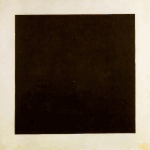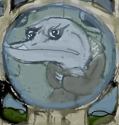|
DerLeo posted:So The Atlantic had a nice photo feature on historical reenactors recently.  These guys look so loving weird. Like they're not human beings but world's best painted 10mm miniatures. [edit] I guess it's the pose loving with proportions.
|
|
|
|

|
| # ? May 9, 2024 16:26 |
|
I feel so bad for the engine on that kettenkrad.
|
|
|
|
Abu Dave posted:Cool thanks for the reccomendations. I ordered everyone. And when you want to start digging in, anything by Lyn Macdonald is gold. I recommend her "1915", which has tons of good stuff including Gallipoli.
|
|
|
|
I'd recommend Dreadnaught which deals with the Naval and Diplomatic buildup to WWI and it's sequel Castles of Steel which deals with the naval conflicts of the war.
|
|
|
|
|
Once they go a little too inside baseball on formations and guns and such they lose me, but they sound cool. How technical are they?
|
|
|
|
Abu Dave posted:Once they go a little too inside baseball on formations and guns and such they lose me, but they sound cool. How technical are they? Not as much technical in Castles of Steel, but more of an in depth step by step from before the war and as it goes on. As I've said before ITT, Beaty's wife, holy poo poo  . .
|
|
|
|
mllaneza posted:And when you want to start digging in, anything by Lyn Macdonald is gold. I recommend her "1915", which has tons of good stuff including Gallipoli. "Somme" and "They Called It Passchendaele" are really excellent too. They're largely based on interviews with vets and letters from the front with lots of personal testimonials on what it's like to be in a muddy hell on earth.
|
|
|
|
mllaneza posted:And when you want to start digging in, anything by Lyn Macdonald is gold. I recommend her "1915", which has tons of good stuff including Gallipoli. There's an entire series of this: 1914 and 1915 are called that; then, by the nature of their years 1916 becomes "Somme" and 1917 "They Called it Passchendale"; then the one with 1918 in the title only covers the Spring Offensive, with nothing (as yet) to follow. If you're at all into oral histories, this is where you want to go; but I'd also strongly recommend pairing Macdonald or any other BEF oral history-type thing with the carnets of Louis Barthas, which is the narrative of a middle-aged French conscript corporal from a small town in Languedoc, called up in 1914 and spent practically the entire period of static warfare on the front lines. It's been a French classic and never out of print since its initial publication in 1978, but the English translation has only just been released. It's a completely different viewpoint to so many English-language sources; the vast majority of personal testimony that I've seen tends to have this underlying tone of "yes, it was complete hell, but you know, we watched out for each other and kept our heads down and saved our dignity and made the best we could of it, human spirit, yadda yadda". Even the ones who condemn the war can usually find something good to recall in the esprit de corps, or taking pride in being really good at their own jobs, or whatever. Barthas, on the other hand, hates most everyone and everything all the time, especially when it involves officers or orders, especially officers giving orders. His priorities are to not get killed, and to stop his men getting killed by stupid orders, and to not kill any Germans if at all possible, which he generally succeeds in doing. He complains his way through most of the major French actions on the Western Front: Artois, Flanders, Champagne, Verdun, the Somme, the Chemin-des-Dames; and generally he prefers to talk to German sentries than his own officers. He utterly refuses to put a brave face or a stiff upper lip on anything, but he's still able to bring out the ridiculous black comedy that he's stuck in. quote:Under cover of the thick fog which covered the landscape each morning, some of us went out to find rifles, revolvers, et cetera. A few of the less scrupulous went through the pockets of the dead men. Hopefully it will get noticed and get other people interested in what other works in other languages could use an English translation. Particularly useful to anyone who's ever wondered exactly why the French army went on strike in spring 1917. It's all in here. Trin Tragula fucked around with this message at 00:23 on Jul 15, 2014 |
|
|
|
gohuskies posted:"Somme" and "They Called It Passchendaele" are really excellent too. They're largely based on interviews with vets and letters from the front with lots of personal testimonials on what it's like to be in a muddy hell on earth. And The First Day On The Somme is a good early example of narrative military history. My favorite anecdote is the one where a British dude finds a little black kitten in a German trench and one of his friends smuggled it to his house under his jacket. It grew up into a fine tomcat and the soldier who found him visited him every year.
|
|
|
|
Can someone reccomend a good book on colonial troops in ethier world war? I'd especially like something on African troops in WWII. They did good work in Burma, but you never hear about them.
|
|
|
|
Retarded Pimp posted:Not as much technical in Castles of Steel, but more of an in depth step by step from before the war and as it goes on. As I've said before ITT, Beaty's wife, holy poo poo I had completely blocked that part of the book from my memory so, uh, thanks, I guess
|
|
|
|
Mycroft Holmes posted:Can someone reccomend a good book on colonial troops in ethier world war? I'd especially like something on African troops in WWII. They did good work in Burma, but you never hear about them. Truth be told, there hasn't been a great deal written about colonial troops. They certainly haven't earned proportional representation in academic or popular history. Something like three million Africans and Indians served in the British armed forces during WWII. I wrote a short paper on this back when I was an undergrad. It's not an especially good piece of work, but it gives a rough outline of the African and Indian experience in WWII. (https://drive.google.com/file/d/0B5qXgnI9LROla1NXQUd2cThCb0E/edit?usp=sharing) There's another thesis someone else wrote about East and West African soldiers that fought in Burma. (http://web.viu.ca/davies/H482.WWI/ColonialTroopsWWl.pdf) As for books, Alan Jeffreys and Patrick Rose's The Indian Army 1937-47: Experience and Development and David Killingray's Fighting for Britain: African soldiers in Second World War are good reads on the subject of colonial troops. The Official History of the Indian Armed Forces in the Second World War, 1939-1945 is a decent read as well, although its more of a macro look at India's military contributions rather than on individual experiences. e: and some stuff about WWI colonial troops. http://www.bl.uk/world-war-one/articles/colonial-troops Bacarruda fucked around with this message at 04:02 on Jul 15, 2014 |
|
|
|
Days of glory is a movie about north african troops in the free french army of ww2 that was ok. It came put a few years go. There is an animated short in the bonus features that was pretty interesting too.
|
|
|
|
Mycroft Holmes posted:Can someone reccomend a good book on colonial troops in ethier world war? I'd especially like something on African troops in WWII. They did good work in Burma, but you never hear about them. Depending on what aspect of the war you're interested in, there's a book called Hitler's African Victims by Raffael Scheck (here) that might be of interest to you. It's about German massacres of captured French colonial soldiers during and after the May-June 1940 campaign, and naturally to provide context about those specific incidents Scheck provides some good information on the soldiers themselves and their role in the campaign.
|
|
|
|
Trin Tragula posted:It's a completely different viewpoint to so many English-language sources; the vast majority of personal testimony that I've seen tends to have this underlying tone of "yes, it was complete hell, but you know, we watched out for each other and kept our heads down and saved our dignity and made the best we could of it, human spirit, yadda yadda". Even the ones who condemn the war can usually find something good to recall in the esprit de corps, or taking pride in being really good at their own jobs, or whatever. HEY GUNS fucked around with this message at 15:32 on Jul 15, 2014 |
|
|
|
HEY GAL posted:Yes, everyone bitches, but I think the case can be made that there's a particularly French type of bitching. It's called a salon
|
|
|
|
"Oh, the Sun King, is it? Well I'm sure that's very nice for you."
|
|
|
|
If you want some excellent, French bitching then you should check out this fine fellow La Rochefoucauld . He participated in the Fronde and then spent the rest of his life being pleasantly cynical.
|
|
|
|
I mean, there's a reason that the French had to invent the term "grognard", right? It just makes so much sense, in the same way that of course German has "schadenfreude" in it.
|
|
|
|
MrMenshevik posted:If you want some excellent, French bitching then you should check out this fine fellow La Rochefoucauld . He participated in the Fronde and then spent the rest of his life being pleasantly cynical.  Other famous French veterans: Descartes. That scene where he's "sitting in a stove"? It's somewhere in Germany: Central European stoves are these huge things, half the size of a room, and there's an upper part where you can hang out, in winter. He went to the 30YW to see the sights. Edit: Trin Tragula posted:I mean, there's a reason that the French had to invent the term "grognard", right? It just makes so much sense, in the same way that of course German has "schadenfreude" in it. HEY GUNS fucked around with this message at 23:01 on Jul 15, 2014 |
|
|
|
HEY GAL posted:Every German I've ever met but one has been nice. My problem is that they'll tell you when you do something wrong but they won't praise you when you're doing well. So of course as an American (our defining characteristics are military adventurism and a desire to be liked and reassured) I wander around an archives or a battlefield fairly vibrating with performance anxiety.
|
|
|
|
I have been enjoying the few books i've read so far on WWI thanks to your guys reccomendations, mostly the A World Undone one. Is there any of those types of books for World War 2 to continue on from here? I really enjoy the format of A World Undone.
|
|
|
|
Has there ever been any deliberate militarisation of people with dwarfism ? I have read the Soviets used men at the lower end of the 'normal' height range for some positions in Tanks, but was wondering if thats ever been taken to the extreme ? For example using people with dwarfism in midget subs (no joke intended), or ball turrets ?
|
|
|
|
Baconroll posted:Has there ever been any deliberate militarisation of people with dwarfism ? I have read the Soviets used men at the lower end of the 'normal' height range for some positions in Tanks, but was wondering if thats ever been taken to the extreme ? For example using people with dwarfism in midget subs (no joke intended), or ball turrets ? Dwarfs and shorter individuals were used in U.S. production lines during WWII. Their shorter stature allowed them to do assembly work inside of confined spaces on aircraft.
|
|
|
|
Are there any statistics on how likely it was that a british, french or german soldier mobilized in 1914 would make it to 1918 without being killed or permanently maimed?
|
|
|
|
Baconroll posted:Has there ever been any deliberate militarisation of people with dwarfism ? I have read the Soviets used men at the lower end of the 'normal' height range for some positions in Tanks, but was wondering if thats ever been taken to the extreme ? For example using people with dwarfism in midget subs (no joke intended), or ball turrets ? If you're a dwarf, you can't access things like foot pedals, your arms are too short to reach ammunition, and you're probably not that strong or healthy. When the Soviets looked for short people, they looked for 165-175 cm heights, not Peter Dinklage.
|
|
|
|
Tyrion's speech at the battle of blackwater bay would fit pretty much any battle on the eastern front if you replace only the words king and kingdom from it.
|
|
|
|
I'd think making military specializations for dwarves specifically would run into the problem of lack of dwarves. Plus then you run into the problem of what to do with the people with dwarfism in your military if that role becomes obsolete or they get promoted out of that specialty or...you get the picture. For a question of my own, you hear about Soviet PoW's being subject to "filtration" by the NKVD when they were liberated, but did anybody give Western Allied PoW's poo poo when they were liberated? Was there any official discrimination against them or stigma toward being a PoW?
|
|
|
|
How did the economy of getting gunpowder supplies work during the early period of guns equipping a decent fraction of armies? How hard was it to stay in supplies of it, what lengths did rulers go to make sure of a steady supply and how valuable were the skills to make it?
|
|
|
|
xthetenth posted:How did the economy of getting gunpowder supplies work during the early period of guns equipping a decent fraction of armies? How hard was it to stay in supplies of it, what lengths did rulers go to make sure of a steady supply and how valuable were the skills to make it? Are you talking super early? Generally, charcoal and sulfur weren't a huge problem, but getting enough saltpeter was a huge pain. Powder makers would have to travel far and wide looking for promising piles of manure and pools of piss from which to extract it. Eventually they figured out how to farm the stuff through a primitive composting method, but it was a very inexact science and they'd still scrounge for natural supplies anywhere they could. In later periods, England would get it from India, while France had an inefficient and intrusive royal monopoly that had the right to dig up the stuff wherever they thought they could find it. Another huge problem with early powder was dampness, which the super fine early power was highly susceptible to. Gunners would often have to dry and regrind powder before use. Actually grinding it was dangerous and very labor intensive. Corning, which involved deliberately damping powder and then forcing it through a sieve, solved the dampness problem by creating tiny nodules with less surface area than fine powder, as well as being considerably more powerful for the same weight of powder thanks to the larger gaps between grains.
|
|
|
|
vintagepurple posted:Are there any statistics on how likely it was that a british, french or german soldier mobilized in 1914 would make it to 1918 without being killed or permanently maimed? For the British - pretty poo poo. 90% of the BEF had become casualties by the end of 1914.
|
|
|
|
Alchenar posted:For the British - pretty poo poo. 90% of the BEF had become casualties by the end of 1914. Casualty isn't quite the same as killed or permanently maimed, though.
|
|
|
|
P-Mack posted:Another huge problem with early powder was dampness, which the super fine early power was highly susceptible to. Gunners would often have to dry and regrind powder before use. Actually grinding it was dangerous and very labor intensive. There's a number of articles in this book about government approaches to gunpowder production--the Swedish saltpeter program, for instance, and French scientists' tinkering with the recipe for gunpowder, under the government aegis. Many governments had programs in place to make this stuff, but I can't think of all of them, of course. Edit: Speaking of French scientists, clear-eyed French pencil-pushers show up a lot in the early modern period. Like, I'll be reading about nutrition standards in early modern armies, and there'll be some footnote referring to some memo or another that some French dude wrote about how soldiers can live on nothing but meat, with no grain or rice, and remain healthy, but the reverse is not the case. He noticed this, thought about it, wrote it down, and it is of relevance to his government. 16th to 17th century Spain and mid-to-late 17th century to 18th century France are really on top of things. I mean, the reason Corvisier could write such a fantastic book is because of those 18th century French records. Like--he can track which side of the body people are wounded on from year to year and note a change, since the military hospitals mentioned it. (People are wounded on both sides of the body equally in the late 17th century and very very early 18th century, but the proportion of wounds on the right side increases at the beginning of the 18th century. Conclusion: the space between soldiers shrank until you got to the well known 18th century close order.) HEY GUNS fucked around with this message at 13:02 on Jul 19, 2014 |
|
|
|
HEY GAL posted:
Yeah it's a theme of 18th century naval warfare that the French were doing experiments with water resistance and precise calculations to work out the optimal shape for a ship while the British dockyards were still working on a 'learn on the job' guildlike master-apprentice learning model. Then the Royal Navy would capture the newest French design and it would inevitably be copied.
|
|
|
|
Alchenar posted:Yeah it's a theme of 18th century naval warfare that the French were doing experiments with water resistance and precise calculations to work out the optimal shape for a ship while the British dockyards were still working on a 'learn on the job' guildlike master-apprentice learning model. If there is a useful early modern military idea, France or Spain probably came up with it and circulated it in memos. If there's a useful Renaissance military idea, every Italian city state but Florence probably came up with it. Florence was not good at mercenaries and not good at organizing logistics. HEY GUNS fucked around with this message at 16:16 on Jul 19, 2014 |
|
|
|
I've been watching the Three Kingdoms series, (And watched the Red Cliff movie) and I have to ask: Was fire really such a powerful influence on the battlefields of China at the time, or is it more a case of fire attacks being remembered and recorded because they look spectacular? edit: Also,  Did this really happen, or is it a Rot3K invention? my dad fucked around with this message at 13:42 on Jul 19, 2014 |
|
|
Fangz posted:Casualty isn't quite the same as killed or permanently maimed, though. Still a pretty horrible statistic. Basically the whole of the pre WW1 era British Army was chewed up badly and almost decimated in the first year of the War. I'm kind of wondering what are the chances of a soldier and officer of the BEF of 1914 and surviving with a possible promotion to 1918. I expect barely a handful made it through  . .
|
|
|
|
|
SeanBeansShako posted:Still a pretty horrible statistic. Basically the whole of the pre WW1 era British Army was chewed up badly and almost decimated in the first year of the War. Is that figure including the entire BEF? 90% casualties even taking into account artillerymen, logistics, doctors, officers, signals, everything is terrible.
|
|
|
vintagepurple posted:Is that figure including the entire BEF? 90% casualties even taking into account artillerymen, logistics, doctors, officers, signals, everything is terrible. Well, I expect now it was mostly fighting front line men and officers logically took the most of that decimation though some of those mentioned who's duty in the field on the front lines no doubt took some loss. I remember the men of the Artillery suffered pretty badly at Mons for example. I'm just parroting from what I've read so forgive me if I am wrong now  . .Not sure about some of the others.
|
|
|
|
|

|
| # ? May 9, 2024 16:26 |
|
vintagepurple posted:Is that figure including the entire BEF? 90% casualties even taking into account artillerymen, logistics, doctors, officers, signals, everything is terrible. Someone who was severely injured and evacuated and then later rejoined the unit only to be permanently disabled/killed would count as a casualty twice, I think.
|
|
|

































